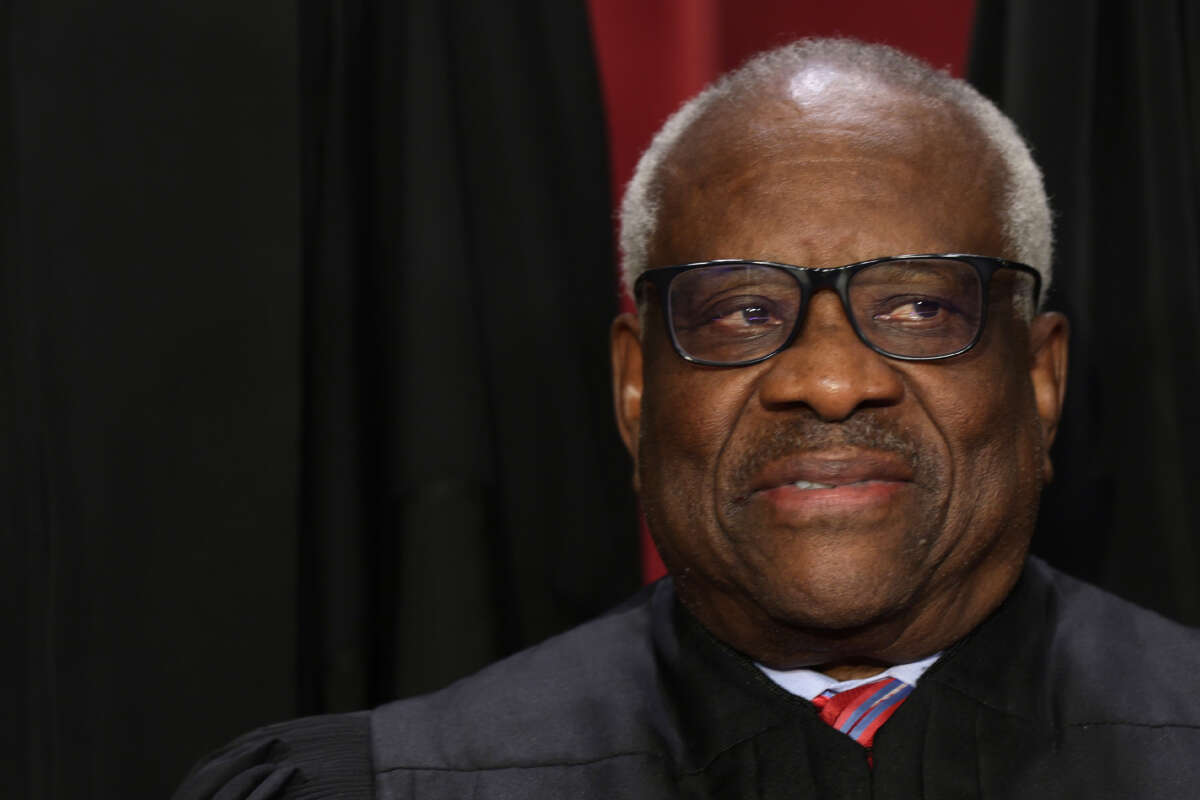A week after a bombshell report from ProPublica revealed that GOP megadonor and billionaire Harlan Crow has been showering Supreme Court Justice Clarence Thomas with lavish gifts that Thomas never disclosed, the publication has unveiled new documents showing that Crow has also given money to the right-wing justice directly.
In 2014, ProPublica uncovered, Crow bought three properties co-owned by Thomas, his mother and the family of his late brother — a two-bedroom house and two vacant lots nearby in Savannah, Georgia. Thomas personally signed the document noting the sale.
Thomas’s mother continued living in the house after Crow bought it, and neighbors have said that she still lives there. Documents show that soon after the sale, renovations to improve the carport, roof and fence began, appearing to total about $36,000.
The purchase, totalling $133,363, has never been disclosed by Thomas, despite disclosure requirements for real estate sales over $1,000. Though it’s unclear if this was a fair value for the purchase, Crow bought two similar properties on the same block in 2013 for $40,000 total, and purchased other properties on the block for similarly low prices.
The right-wing billionaire also bought the house next door, known for hosting parties and being a nuisance, and tore it down. A neighbor described the house to the publication as “an eyesore.”
Four ethics law experts told ProPublica that Thomas’s failure to disclose the purchase was likely illegal.
“He needed to report his interest in the sale,” Virginia Canter, former government ethics lawyer and chief ethics counsel for watchdog Citizens for Responsibility and Ethics in Washington (CREW), told the outlet. “Given the role Crow has played in subsidizing the lifestyle of Thomas and his wife, you have to wonder if this was an effort to put cash in their pockets.”
Thomas’s seeming attempts to hide the transaction could suggest that he was “hiding a financial relationship with Crow,” Kathleen Clark, Washington University in St. Louis legal ethics expert, told ProPublica.
The new revelations are damning. Right-wing figures and lawmakers scrambled to defend Thomas after last week’s report, downplaying the gifts, which have been confirmed by Thomas, and claiming that the investigation was essentially a smear campaign against the justice. The new findings appear to show, however, that Thomas benefited financially from his close relationship with Crow — in addition to enjoying lavish gifts and vacations from Crow, which the megadonor and other right-wingers, like anti-abortion court activist Leonard Leo, used to buy influence.
In a statement, Crow claimed that he purchased the house, which Thomas spent part of his childhood in, with the goal of preserving Thomas’s legacy. “My intention is to one day create a public museum at the Thomas home dedicated to telling the story of our nation’s second black Supreme Court Justice,” he said. “I approached the Thomas family about my desire to maintain this historic site so future generations could learn about the inspiring life of one of our greatest Americans.”
Since ProPublica’s bombshell story last week, reporters have uncovered a number of other questionable details about both Crow and Thomas that do not reflect well on the Supreme Court justice. For instance, Crow’s sprawling estate — the library wing of which has been home to the swearing in of at least one conservative judge, 5th Circuit Court of Appeals Judge James Ho — hosts several Nazi artifacts, including Nazi-branded linens, an Adolf Hitler painting and a signed copy of Mein Kampf.
Meanwhile, Thomas’s failure to disclose the litany of gifts and money he’s received from Crow appears to be rooted in the justice’s belief that powerful people like him shouldn’t be required to disclose such things at all. In 2010, in his concurring opinion in the Supreme Court’s infamous Citizens United ruling, Thomas wrote: “This court should invalidate mandatory disclosure and reporting requirements.” He went on to say that disclosure requirements like the ones he’s seemingly in violation of, which were implemented after Watergate, have the potential to “rui[n] careers.”
Join us in defending the truth before it’s too late
The future of independent journalism is uncertain, and the consequences of losing it are too grave to ignore. To ensure Truthout remains safe, strong, and free, we need to raise $46,000 in the next 7 days. Every dollar raised goes directly toward the costs of producing news you can trust.
Please give what you can — because by supporting us with a tax-deductible donation, you’re not just preserving a source of news, you’re helping to safeguard what’s left of our democracy.
